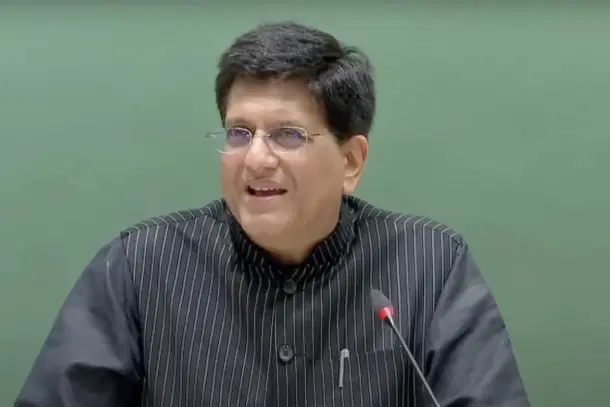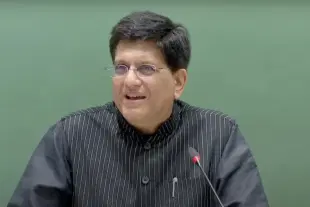News Brief
India Moving Towards A Unified Quality Standard For Domestic And Global Markets: Piyush Goyal
Arun Dhital
Jul 05, 2025, 11:21 AM | Updated 11:21 AM IST
Save & read from anywhere!
Bookmark stories for easy access on any device or the Swarajya app.


India is steadily advancing towards a single, high-quality standard that aligns with both domestic and international benchmarks, Union Commerce and Industry Minister Piyush Goyal said on Friday (4 July).
Addressing the 75th anniversary of SGS in India, Goyal highlighted the exponential rise in Quality Control Orders (QCOs), from 14 in 2014 to 156 in 2024, now covering 672 products.
Goyal underlined the government’s mission to align Indian manufacturing with global standards, ensuring goods and services labelled 'Made in India' meet global expectations.
“India today is focused and rapidly moving towards a nation which will have only one standard, and that will be a high-quality standard. A standard that will work in India and the same standard will be exported to the rest of the world,” he stated.
Goyal emphasised the “Zero Defect, Zero Effect” vision, signifying high product quality with minimal environmental impact.
He outlined three key action points, beginning with the need to identify areas where testing infrastructure is required.
He also stressed the importance of larger industries supporting MSMEs in upgrading their quality to meet global standards, and highlighted the need to involve academia, startups, and innovators more actively in shaping the country's standard-setting process.
To improve India's testing infrastructure, Goyal invited industries to request world-class testing facilities, promising full financial support from BIS.
“Every test result should carry with it the weight of trust of 140 crore Indians. They trust a certificate of quality,” he said, stressing that testing labs must modernise, adopt automation, and seek accreditation from the Quality Council of India.
He also pushed for increased third-party certification while urging certifying bodies to maintain the highest standards of trust and transparency.
To ease compliance costs, Goyal said that the government was trying a 50 per cent reduction in testing fees at BIS and NTH labs, and encouraged private labs to follow suit.





